Eleven year-old Tripawds Spokesdog Wyatt Ray has taught us a lot since he lost his leg at eight months old. Today in our two-part series about caring for an older Tripawd, we’ll dive into the details about what it takes to keep mature Tripawds like him strong and active.
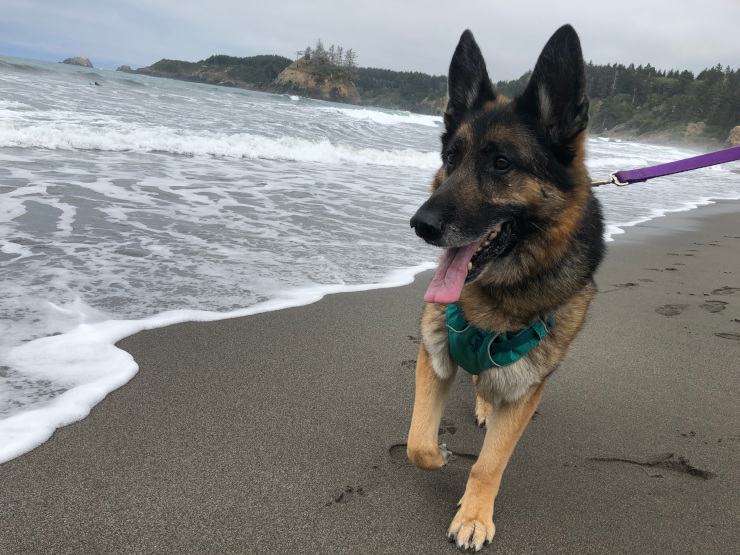
Don’t Miss Part One, “Real Life with an Older Tripawd.”
Whether your pet has been a Tripawd for two months or ten, caring for an older three-legged cat or dog requires you to do everything in your power to minimize the impact of one less leg. Here’s four ways to get started.
Step 1: Understand pet pain signals.
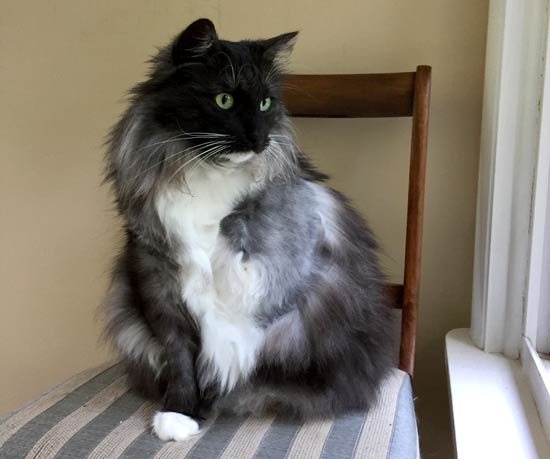
If you think your Tripawd is just “slowing down” because of age, think again. Older pets often suffer from arthritis and muscle pain in silence because we humans are so bad at interpreting their pain signals. It’s up to us to listen to what they are telling us, with pet pain signals like:
- Less physical activity.
- Avoiding stairs.
- Reluctance to jump onto surfaces.
- Slow and wobbling when standing and sitting.
- Decreased appetite.
- Cranky behavior.
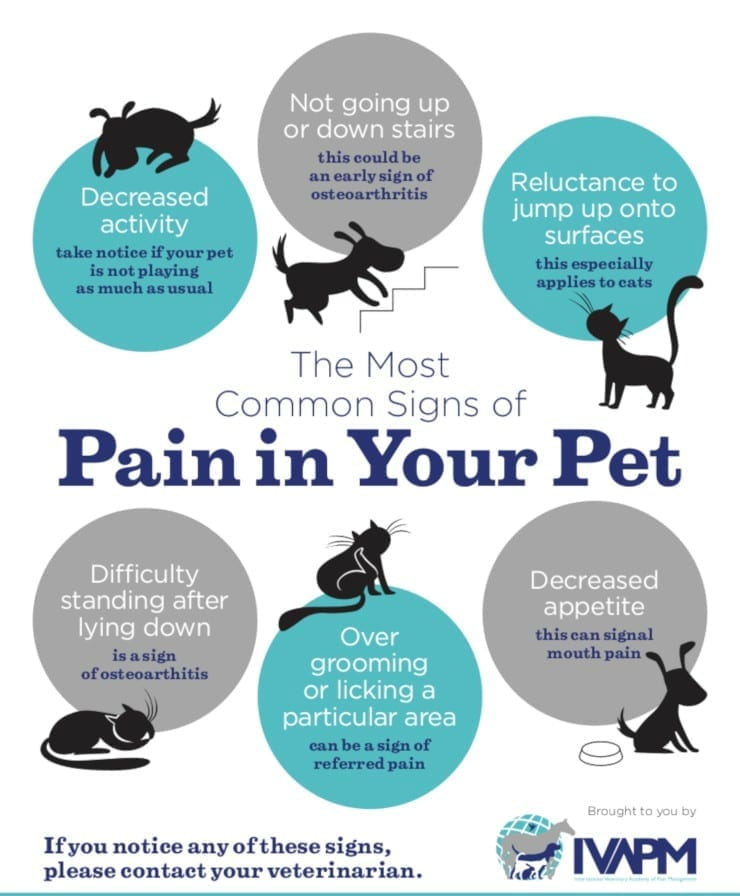
When your pet shows these behaviors, document them and describe how often they occur. Then take this information to your veterinarian.
Step 2: Advocate for the best pain management.
Pain management doesn’t stop when amputation recovery is over. Caring for an older Tripawd (and younger ones too) can often mean ongoing pain management with daily medication, stretching, massage and rehabilitation therapy. These activities keep your Tripawd’s quality of life up and pain levels down. No Tripawd should be without them. Here’s how to make sure yours isn’t:
- Find a vet who is up to speed on the latest veterinary pain management guidelines.
- You want a vet who is excited to show you how to keep your Tripawd’s activity safe and pain-free.
- If your vet isn’t helping you do this, vet pain management guru Dr. Robin Downing says it’s time to get a new vet.
In our blog post, “Help Your Tripawd Live Better,” Dr. Downing says:
“If you have an animal that needs to have a body alteration by losing a limb and becoming a Tripawd and you have a veterinarian who is not trying to stay ahead of the pain curve, or a veterinarian who is not actively educating about how we need to adapt activity or how we need to adapt a home environment, it’s time to fire that veterinarian and get yourself a different one,” says Dr. Downing, owner of the AAHA-accredited Windsor Veterinary Clinic and founder of the Downing Center for Animal Pain Management.
Step 3: Establish a relationship with an animal rehabilitation / physio therapist.
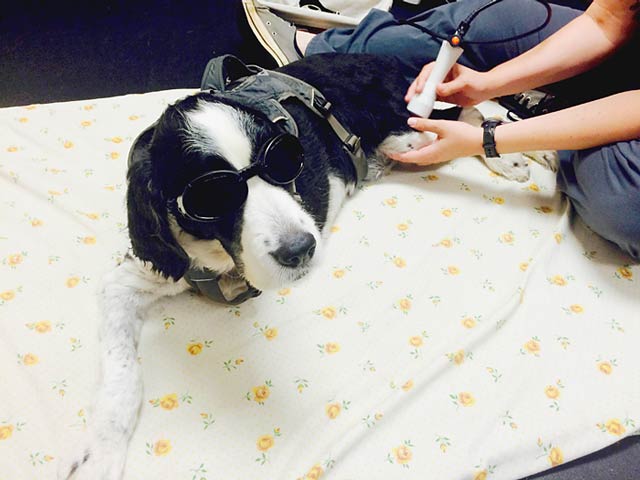
In a perfect world, you will have a veterinarian who is skilled in pain management and rehabilitation (physio) therapy. If you can’t find a pain management veterinary rehabilitation therapist, that’s OK. You’ll just need two work with two providers, typically a veterinarian who oversees a therapy team. The good news is, you can usually find them both at the same clinic. What’s even better is that the Tripawds Foundation may pay for your pet’s first rehab visit!

- An animal rehabilitation therapist guides you through recovery and beyond.
- They will show you the right kinds of activity to do when your Tripawd is healthy and pain free.
- And if your Tripawd starts showing pain signals, they can guide you during that time too.
Whether your cat or dog is pain-free or not at the moment, it’s good to create an established relationship with a rehabilitation therapist so you call them when life gets rough on three legs. More often than not, it will happen eventually.
Step 4: Rethink “exercise” for your Tripawd.
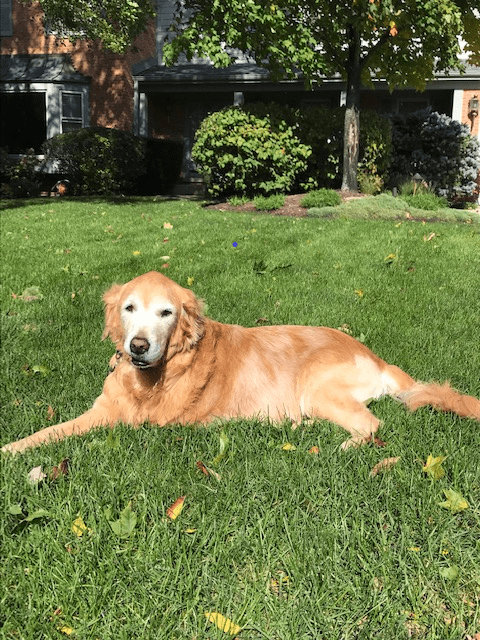
Forget long walks, ball throwing and Frisbee tossing. Sure, your older Tripawd can probably do them. But are these things worth putting your pet’s body in peril? We see too many Tripawd muscle pulls and injuries that could have been avoided with gentler games. It even happened to us once, years ago when Tripawds CFO Jerry hurt his knee because we let him play Frisbee. Playing fun low-impact games like animal nosework, balance games and trick dog training is so much better and safer for a Tripawd.
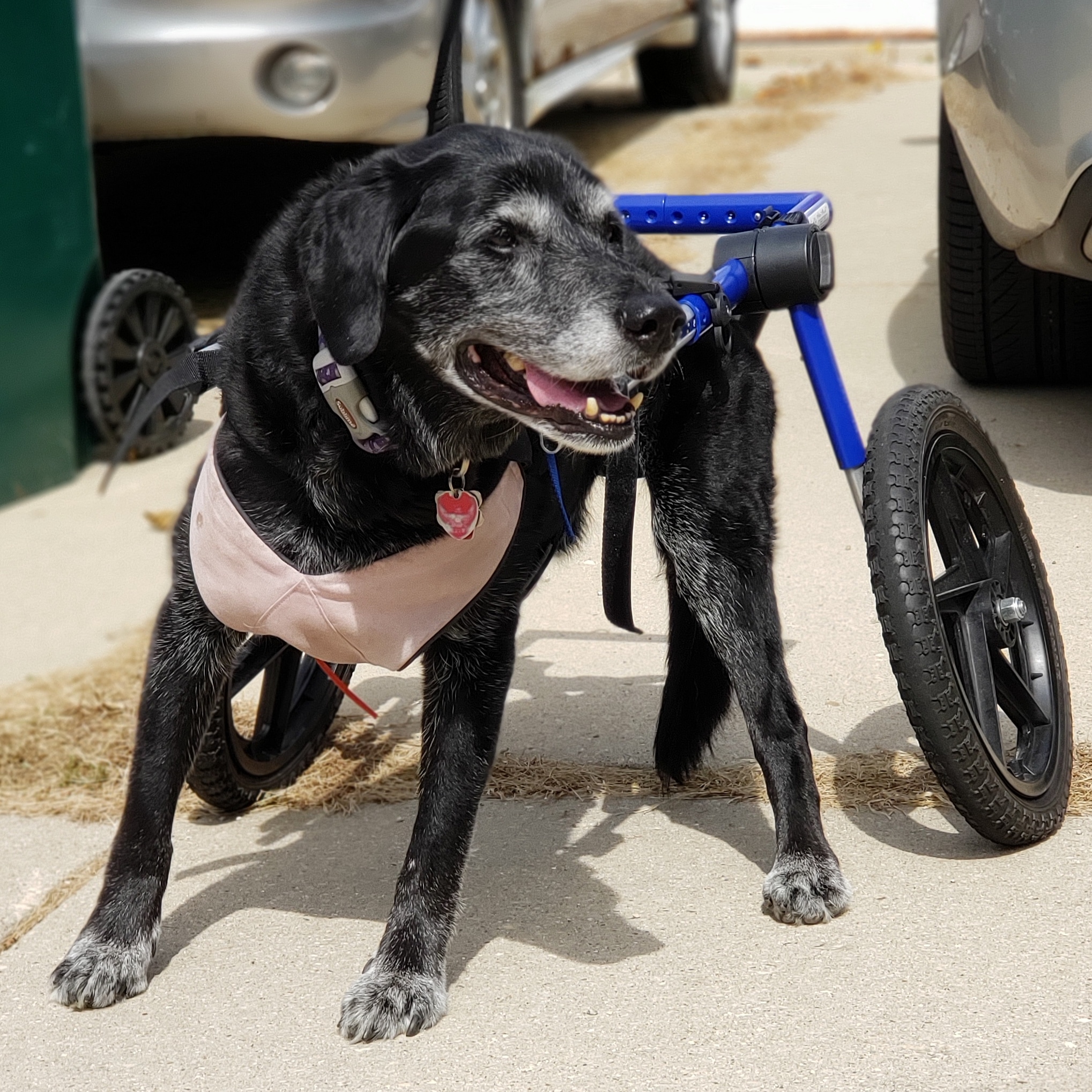
Caring for an older Tripawd doesn’t have to mean a boring, bubble-wrapped life. With a careful balance of pain management, a slim weight profile, the right kinds of activity and a skilled vet team, your three-legged senior dog has as good a shot as any at living a rich, full life.
Hi Jerry,
My 9-year-old hound dog Evie just had her right front leg amputated. I am 69 and a widow. My kids live in different states. I’m worried about Evie’s ability to stand. I had a hard time getting her in the house after returning from the vet where she spent the night. She had a very large Sarcoma growing from the shoulder down and this was what along with her leg was removed. She is on a number of meds plus a antibiotic. The draining has slowed down. I’ve tried to prop her up on pillows to get the wound off the floor. She does not have a bandage. Is there anything you can suggest to help me pull her off the floor without interfering with her stitches? She hasn’t urinated since I left the vet’s office at 7 pm last night.
Hi Pamela, please let your vet know how she’s doing OK? A dog shouldn’t go more than 12 hours without urinating. Meanwhile, please join our discussion forums so we can help. Keep in mind that one day out, all dogs are wobbly and typically unwilling to move around. Her behavior is not unusual. Try to put yourself in her paws! Don’t make her do anything she doesn’t need to do except potty and drink water. Check out our What to Expect articles for some more tips, and join us in the forums OK?
Hi Jerry,
I have a 10-year old front-leg tripawd who has been this way since she was less than a year old. We just recently got her a wheel chair from Ruff Rollin’ in order to combat the arthritis that’s started to develop. We were told that the bars of the chair should be parallel with the floor, but we could never quite get that to happen (it’s lower in the rear) and communication has been rather limited with the company. My concern is that, if the chair isn’t adjusted correctly, then we are doing more harm than good. Riley seems determined to continue her hopping form of walking even in the chair, which I can’t imagine is good for her and why we got the chair in the first place. She’s had it for more than a month now and only rarely lifts up her front leg to glide on her back legs alone. She also is still very reluctant to use it without high-value treats as encouragement. Could this be because of the chair adjustment? If not, do you have any recommendations for how I can better train her to effectively use the chair?
Thanks much! Your website has been a great help so far.
Hi Elisa and pup (what’s her name?). We are so glad you joined us. Yes, your instincts are spot-on: a chair that doesn’t fit right can do more harm than good. I would not use the chair any more until that happens. It sounds like the chair needs an expert to review the fit, in person. Please consider taking her to a canine rehabilitation therapist for an evaluation. The Tripawds Foundation can pay for your first rehab visit so you’ve got nothing to lose. And also, please consider joining us in the Tripawds Discussion Forums so we can follow along on your pup’s journey.
Thanks for sharing Jerry and fine tuning my radar. Your words will help me be proactive in caring for Jake. Think of all the animals who’s lives you have helped make better!!
You are so welcome! Jake is very fortunate to have you looking out for him. By being part of this community, we can all help animals on 3 live better lives!
Thank you so much for sharing. It is a great help to hear other’s going through the same unknowns. We all want what’s best for our furbabies and getting advice and recommendations from someone who has or is going through the same challenges sparks a new hope for others. Best of luck to you and we look forward to hearing more from Wyatt Ray. What an inspiration. Love you guys.
You are so welcome Judy! We will keep you posted on Wyatt, and hope you will do the same for Buffy. Thank you so much for stopping by and being such a pawesome supporter!
Hi Jerry,
Thank you so much for your great tips. My tripawd girl is only 2 and I hope that she will be pain free as long as possible. I do what you have suggested already. I learned canine massage, we do short walks, mostly 30 – 45 min. , a lot of swimming, joint supplements and a balanced raw diet. I am studying vet nursing now and also have a physiotherapist and two great vets at hand. When she gets older I will buy a dog stroller. Wheelchair won’t work for a front limb amputee. I love her so much and will do everything I can to make life easier for her.
Thank you for managing this group. It’s full of good information and great support.
Warm regards and pats ,
Andrea & Tilly (doggy)
Andrea & Tilly, thanks for sharing your experience! Tilly is going to age very well thanks to the terrific team she has on her side. Keep up the great work!
Great points. Getting older can lead to arthritis and other pain. Not having a limb equals more stress on remaining limbs means more pain.